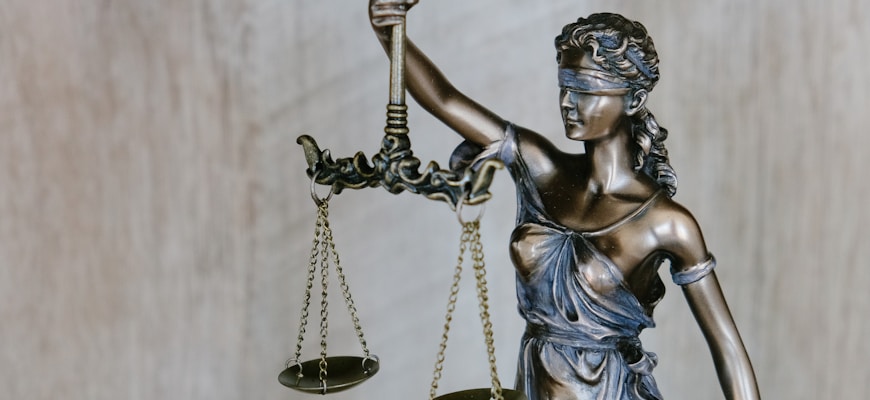Ripple vs SEC: Latest Developments in the Legal Battle

- An Overview of the Ripple vs SEC Legal Battle
- Key Events Leading Up to the Lawsuit
- Implications of the SEC’s Lawsuit on Ripple and XRP
- Ripple’s Response to the SEC Allegations
- The Role of XRP in the Ripple vs SEC Case
- Potential Outcomes and Future Impact on Cryptocurrency Regulation
An Overview of the Ripple vs SEC Legal Battle
The legal battle between Ripple and the Securities and Exchange Commission (SEC) has been ongoing for quite some time, with both parties presenting their arguments in court. One of the main points of contention is whether Ripple’s XRP token should be classified as a security or not. The SEC argues that XRP is a security and that Ripple violated securities laws by selling it to investors without proper registration. On the other hand, Ripple maintains that XRP is a currency and not a security, therefore not subject to the same regulations as securities.
The case has garnered a lot of attention in the cryptocurrency world, as the outcome could have far-reaching implications for the industry as a whole. Many are watching closely to see how the court will rule on this matter, as it could set a precedent for how other cryptocurrencies are regulated in the future.
Ripple has been fighting back against the SEC’s allegations, arguing that the agency has overstepped its bounds and is trying to regulate the entire cryptocurrency market through this case. Ripple has also accused the SEC of providing contradictory guidance on the issue, which has only added to the confusion surrounding the regulation of cryptocurrencies.
As the legal battle continues, both Ripple and the SEC are presenting their evidence and arguments to the court. It remains to be seen how the judge will rule on this case and what impact it will have on the broader cryptocurrency market. For now, all eyes are on the courtroom as this high-stakes legal battle unfolds.
Key Events Leading Up to the Lawsuit
The events leading up to the lawsuit between Ripple and the SEC are crucial to understanding the current legal battle. In 2020, the SEC filed a lawsuit against Ripple, alleging that the company had conducted an unregistered securities offering through its XRP cryptocurrency. This marked a significant turning point in the relationship between Ripple and the regulatory agency. Prior to the lawsuit, Ripple had been engaged in ongoing discussions with the SEC regarding the status of XRP. Despite these discussions, the SEC ultimately decided to take legal action against Ripple, leading to the current legal battle that has captured the attention of the cryptocurrency community and beyond.
Implications of the SEC’s Lawsuit on Ripple and XRP
The Securities and Exchange Commission’s lawsuit against Ripple has significant implications for the future of the company and its digital asset, XRP. The outcome of this legal battle could set a precedent for how cryptocurrencies are regulated in the United States.
If the SEC prevails in its case against Ripple, it could have far-reaching consequences for other cryptocurrency projects. Companies may be forced to reevaluate their business models and compliance strategies to avoid similar legal challenges. Additionally, the value of XRP could be negatively impacted, leading to a decrease in investor confidence and market adoption.
On the other hand, if Ripple is successful in defending itself against the SEC’s allegations, it could reinforce the legitimacy of XRP as a digital asset. This outcome could boost investor confidence and potentially lead to an increase in the value and adoption of XRP. It could also provide much-needed clarity on the regulatory status of cryptocurrencies in the US.
Overall, the outcome of the SEC’s lawsuit against Ripple will have a significant impact on the future of the company and the broader cryptocurrency market. Investors and industry participants will be closely watching the developments in this legal battle to understand how regulations will shape the future of cryptocurrencies like XRP.
Ripple’s Response to the SEC Allegations
Ripple has strongly denied the allegations made by the SEC, claiming that the lawsuit is baseless and without merit. The company argues that XRP is not a security and should not be regulated as such. Ripple has emphasized that it has always acted in good faith and in compliance with all relevant laws and regulations.
In response to the SEC’s claims, Ripple has stated that it will vigorously defend itself in court. The company has assembled a team of top legal experts to fight the lawsuit and is confident in its position. Ripple has also expressed its commitment to working with regulators to clarify the status of XRP and ensure compliance with any applicable laws.
Ripple’s CEO has publicly criticized the SEC for its handling of the case, accusing the agency of overreach and regulatory overreach. He has called for more clarity and transparency in the regulatory framework surrounding cryptocurrencies, arguing that the current uncertainty is harmful to the industry as a whole.
The Role of XRP in the Ripple vs SEC Case
One of the key elements in the legal battle between Ripple and the SEC is the role that XRP plays in the case. XRP is the digital currency that Ripple uses in its cross-border payment system. The SEC has alleged that XRP is a security, while Ripple argues that it is a currency. This distinction is crucial because securities are subject to strict regulations, while currencies are not.
Ripple has maintained that XRP is not a security because it functions as a medium of exchange and a store of value, similar to other cryptocurrencies like Bitcoin and Ethereum. The company has also pointed out that XRP existed before Ripple was founded and that it is decentralized, unlike traditional securities.
On the other hand, the SEC claims that XRP meets the criteria of a security under US law because it was sold as an investment contract to fund Ripple’s operations. The SEC argues that Ripple and its executives profited from the sale of XRP and failed to register it as a security, violating investor protection laws.
The outcome of this case will have significant implications for the cryptocurrency industry as a whole. If the court rules in favor of the SEC and classifies XRP as a security, it could set a precedent for how other cryptocurrencies are regulated in the future. On the other hand, if Ripple wins the case and XRP is deemed not to be a security, it could open the door for greater innovation and adoption of digital currencies.
Potential Outcomes and Future Impact on Cryptocurrency Regulation
The ongoing legal battle between Ripple and the SEC has significant implications for the future of cryptocurrency regulation. Depending on the outcomes of the case, we may see a shift in how digital assets are classified and governed by regulatory bodies. This could potentially impact not only Ripple but the entire cryptocurrency market as a whole.
If Ripple emerges victorious in the lawsuit, it could set a precedent for other companies in the crypto space facing similar challenges from regulatory agencies. This could lead to greater clarity and consistency in how cryptocurrencies are regulated, which in turn could boost investor confidence and drive further adoption of digital assets.
On the other hand, if the SEC prevails, we may see stricter regulations imposed on cryptocurrencies, which could stifle innovation and hinder the growth of the industry. This could have far-reaching consequences for not only Ripple but also for other projects in the crypto space that may face increased scrutiny from regulators.
Overall, the outcome of the legal battle between Ripple and the SEC has the potential to shape the future of cryptocurrency regulation. It is crucial for stakeholders in the crypto community to closely monitor the developments of this case and be prepared to adapt to any changes in regulatory landscape that may result from the proceedings.



